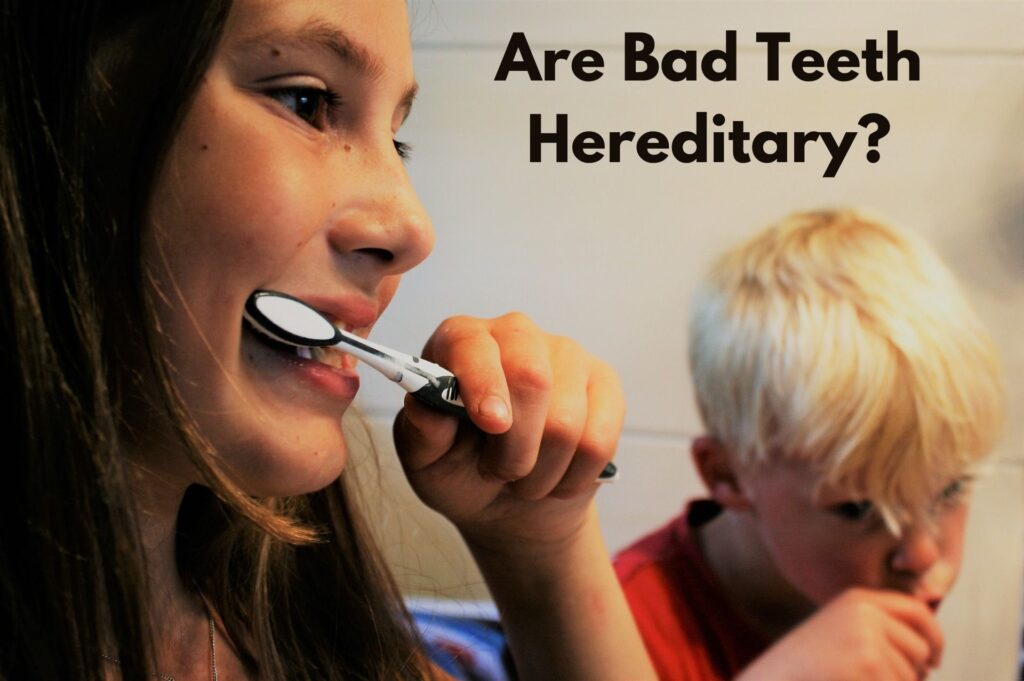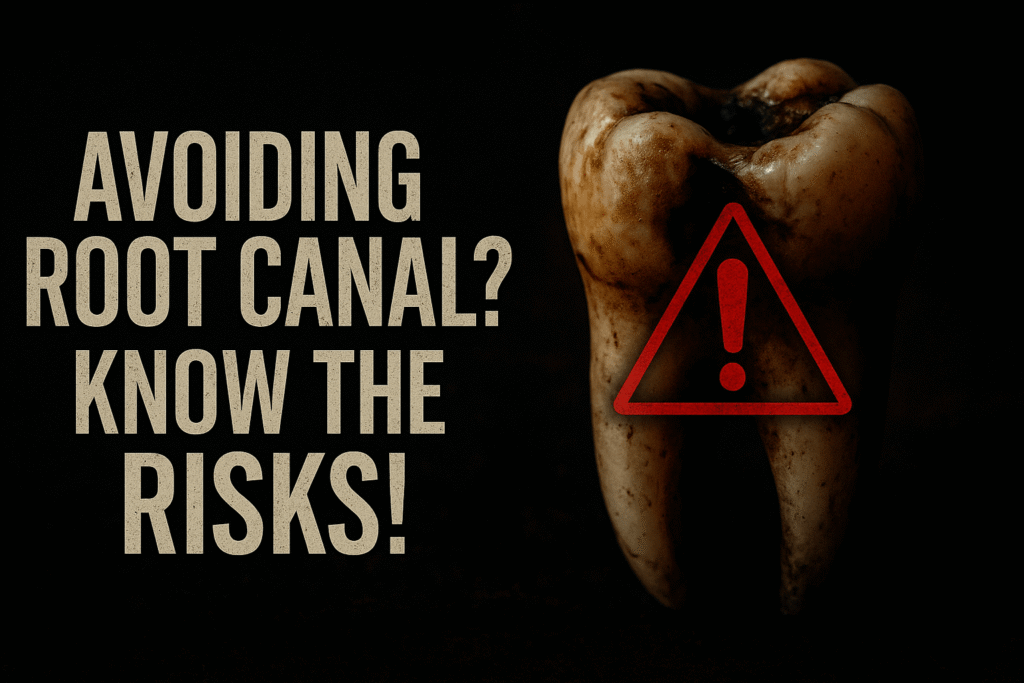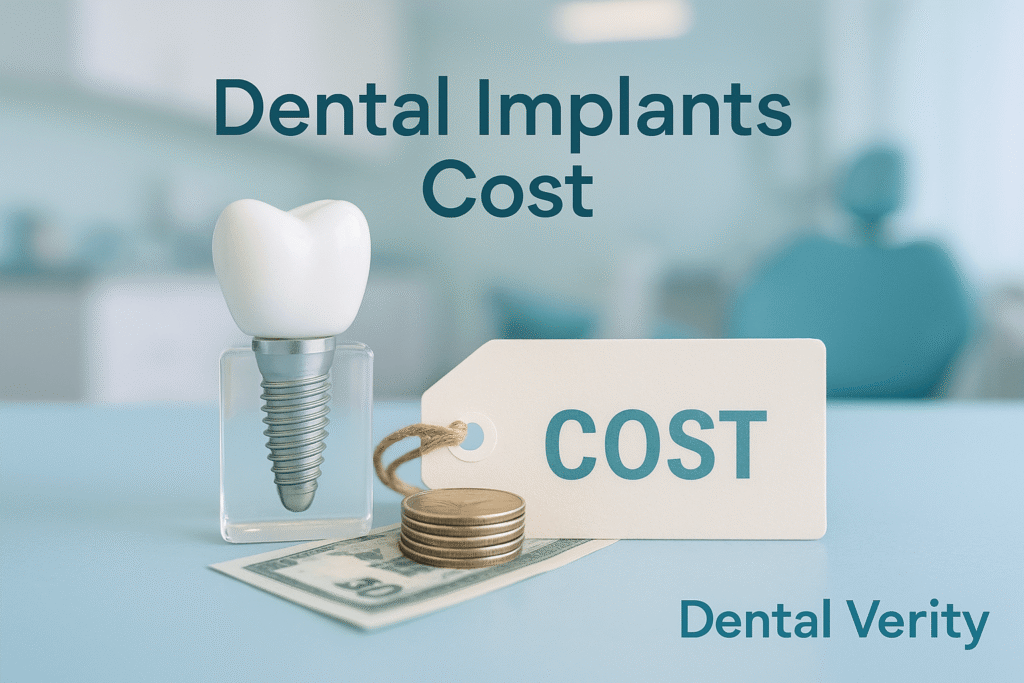
It’s well known that genetics influence various traits like hair color, eye color, and blood type. But did you know that your oral health can be affected by your genes as well? Bad teeth can run in families, meaning the risk of developing dental issues like cavities, gum disease, or misaligned teeth could be passed down from your parents. Your genes play a significant role in how your teeth and bone structure develop, and if those structures don’t form properly, it can make you more susceptible to dental problems. So, if your parents had issues with their teeth, there’s a higher chance that you might face similar challenges.
However, while genetics can increase the likelihood of developing bad teeth, it doesn’t guarantee that you will. Maintaining a healthy smile is still possible with proper care. Brushing and flossing every day, visiting your dentist regularly for checkups, and adopting preventive measures can help protect your pearly whites and reduce the impact of any hereditary dental health problems. Even if bad teeth run in your family, it’s never too late to take action and keep your oral health in check.
Which Oral Health Problems Are Inherited?
If certain oral health conditions are common in your family, you may be at a higher risk of developing them, regardless of your dental care routine. Here are a few issues that can be hereditary:
Periodontal Disease: A Genetic Factor in Oral Health
If oral health conditions like periodontal disease run in your family, you might be at a higher risk of developing it, regardless of your dental care habits. Periodontal disease can cause red, swollen, and inflamed gums, and if left untreated, it can lead to tooth loss and bone loss. The condition is hereditary, and early diagnosis by a dentist can help prevent gum disease from spreading. Being aware of your family history of periodontal disease can prompt you to take extra precautions in caring for your gums and teeth.
Tooth Decay: Genetics and Cavities
Tooth decay is another issue that can be influenced by genetics. Some people are more prone to cavities due to genetic variations affecting their teeth. This is especially true for those with a family history of decay, as sugar can exacerbate the issue. Regular routine cleanings and exams can help detect early signs of decay in permanent teeth, reducing the risk of further complications. If you’re genetically predisposed, the risk of gum disease and tooth loss may be higher, so maintaining good oral hygiene is essential.
Oral Cancer: Understanding the Risks
Oral cancer is also linked to genetics. If your family has a history of this condition, you may have a higher chance of developing it, especially if you have risk factors such as tobacco and alcohol use. Genetic markers play a role in your genetic predisposition, and understanding this can aid in early detection, which is crucial in preventing this life-threatening condition.
Tooth Color: The Genetic Connection
Your tooth color is not just a result of lifestyle and diet, but also of your genetics. If you have thinner enamel, your teeth may appear darker or more yellow, as the dentin underneath becomes more visible. While enamel is typically blue-white, its thinning over time can cause a more light-yellow tinge. By adopting good oral care habits, you can minimize the impact of these natural genetic factors and maintain a brighter smile.
How Genetics Influence Your Oral Health
Just like height, hair color, and other traits, your oral health is also influenced by your genes. If your parents had bad teeth, you may be predisposed to similar dental problems, such as misaligned teeth or weak enamel. The size, shape, and color of your teeth can be passed from parent to child, meaning you might inherit certain characteristics that affect your smile. Growing up, if you saw your parents frequently visiting the dentist, it could be a sign that oral health issues are common in your family. While genes may play a role in making you more prone to unhealthy smiles, good care like regular brushing and visits to the dentist can help keep these issues under control.
Cavities: The Role of Genetics in Tooth Decay
Cavities can also be influenced by gene variations, especially when it comes to the risk of decay in permanent teeth. Teens and pre-teens are often more susceptible to tooth decay, but adults with chronic tooth decay may need to consider more frequent cleanings or prescription toothpaste and mouthwash to keep their teeth healthy. If you have a family history of cavities, it’s important to stay proactive with your oral care to minimize the effects.
Misaligned Teeth: The Genetic Link
If you have misaligned teeth or notice your teeth are crooked or crowded, it could be because of your parents. Many orthodontic issues are caused by the size of your jaw, which is genetic. Depending on the positioning of your teeth, you might also develop bite issues that lead to chronic jaw pain. The good news is that you don’t necessarily need braces to straighten your smile. Modern solutions like ClearCorrect and other clear aligners can help improve your oral health without the need for traditional metal braces.
Gum Disease: Family History Matters
Gum disease is a preventable condition, but if it runs in your family, you’re at a higher risk of developing it. In the United States, it is the leading cause of adult tooth loss, with the CDC estimating that 50% of adults are affected. Additionally, 30% of the population may have a higher risk due to genetics. To prevent it, make sure you floss every night and brush twice a day. Pay attention to any symptoms like swollen, red, or bleeding gums, and consult your dentist immediately if you notice them.
Tips for Maintaining Good Oral Health
- Brush your teeth twice a day: Brushing twice daily helps to remove food particles and plaque, ensuring your teeth stay healthy.
- Floss daily: Flossing removes particles stuck between your teeth, preventing gum disease and cavities.
- Eat a nutritious, well-balanced diet: A healthy diet supports your oral health and can help minimize the risk of dental problems.
- Limit your consumption of sugary, fatty, and acidic foods: These foods can cause tooth decay and weaken your enamel.
- Avoid tobacco products and limit excess alcohol: Tobacco and alcohol can harm your teeth and gums, increasing the risk of oral cancer and other dental issues.
- Visit your dentist regularly for cleanings and exams: Regular visits to the dentist can help detect and treat any dental issues early, ensuring a problem-free smile.
- Maintain a healthy lifestyle: A good lifestyle, with proper dental care, can reduce the impact of hereditary dental issues, helping you keep a beautiful smile for longer.
- Even if your genes predispose you to certain oral health issues, maintaining good habits can help you prevent them from becoming serious problems.



